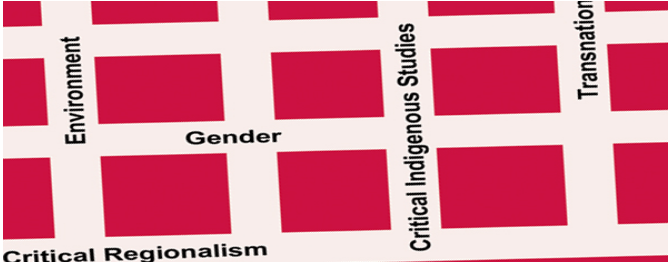
American Studies ETDs
Publication Date
12-13-1990
Abstract
Near the end of the Spanish Colonial Period in New Mexico, Hispano and mestizo citizens from the Santa Fe and San Miguel del Bado area cast their eyes on some longed-for fertile grazing lands called las vegas grandes en el Rio de las Gallinas. Due to constant prevailing forays by Indians during this epoch, initial settlement efforts failed, but in 1835 a new thrust from San Miguel del Bado led to the permanent settlement of one of the last community land grants conceded in New Mexico during the Mexican Period.
This dissertation concerns itself with the history and culture of this intrepid, enduring group of individuals who settled this frontier area of New Mexico. Living on the scattered settlements within the confines of the community land grant, these people survived the ravages of time and encounters with different cultures to emerge as a progressive community on the eve of New Mexico's statehood.
This study provides a sequence of historical accounts that track the societal development of these people. It begins with their early settlement patterns as they continued to seek lands with irrigation along the Pecos River on the eastern flank of the Sangre de Cristo Mountains. The population at San Miguel del Bado grew, fertile lands diminished, and these people continued their migratory movements towards the lands at Anton Chico, Tecolote, and Las Vegas-fully exposed and undaunted by their encroachments on Indian domain.
Once they were firmly established on the Las Vegas grant, the people continued their struggles with the Indians. Following the arrival of the Santa Fe Trail, their material culture and society received new infusions from the eastern United States. These cross-cultural interactions continued with the permanent arrival of Americans after 1846. The people adjusted, some slower than others, but collectively they faced cultural clashes, struggled for economic survival and continued to forge a new identity as foster children of the United States.
The many technological innovations and economic institutions brought to New Mexico radically altered their pastoral-agrarian society. Many retained those traditions, but others adjusted to the pressures of Americanization. They fought for education and gradually established an ethnic consciousness. Many assumed new roles as educators, civic leaders, and politicians while others became members of an emerging working class. When their land grant was threatened by outside encroachments, the masses of poor people rose in protest. And again they prevailed.
Through the first decade of the 20th Century, these people addressed many societal issues that were important to them. They had been loyal patriots to the United States as trustworthy citizens and soldiers, although at times they had been compelled to prove that loyalty. And finally, their obstinacy and perseverance brought them the statehood status they had sought for over sixty years.
Document Type
Dissertation
Degree Name
American Studies
Level of Degree
Doctoral
Department Name
American Studies
First Committee Member (Chair)
Charles DeWayne Biebel
Second Committee Member
F. Chris García
Third Committee Member
Tobías Durán
Fourth Committee Member
Erlinda Gonzales-Berry
Recommended Citation
Arellano, Anselmo F.. "Through Thick and Thin: Evolutionary Transitions of Las Vegas Grandes and its Pobladores." (1990). https://digitalrepository.unm.edu/amst_etds/107
